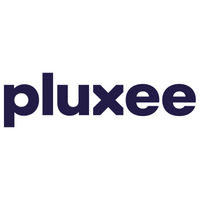Why business can’t afford to neglect employee wellbeing
Affordability, in its most basic terms, means the state of being cheap enough for people to be able to buy, according to the Cambridge Dictionary definition.
This year, Pluxee UK aims to explore the role of affordability in employee wellbeing, from highlighting how it impacts physical, mental and financial health to providing strategies for making employee benefits cost-neutral and, therefore, more affordable.
It aims to encourage employers to consider whether they can afford to not focus on employee wellbeing.
Mental ill-health is the cause of 63% of long-term sickness absences (four weeks or more) – more than any physical illness, costing the UK economy at least £117.9bn annually.
Return on investment
The affordability debate doesn’t just cover financial loss. Employers investing in employee mental health see a return on their initial investment. Every £1 spent on mental health benefits yields a £5 return. Businesses can invest this return in further wellbeing and engagement initiatives.
Another aspect of affordability is recruitment costs. It can cost up to £30,000 to recruit a new employee. A Pluxee UK survey of more than 1,000 UK employees in November 2023 found that almost half plan to look for a new role in 2024.
Businesses must seriously consider whether they can afford high levels of employee turnover. With 64% of employers considering the cost of recruiting fresh skills to be a considerable financial risk over the next two years, the likely answer is no.
Pluxee UK’s survey asked employees what they think should be the top priorities for HR in 2024, and employee health and wellbeing was the second highest choice. Aligning HR priorities with employee expectations is essential for employee engagement and retention. Organisations that treat employee wellbeing as a tick-box exercise or neglect it altogether may pay the price in high employee turnover.
Provide the best with less
Businesses are still feeling the pinch from rising costs. Budgets are tight, and we’re asking HR professionals to provide the best possible support to their employees with less funds.
It’s time to get strategic, embedding cost-neutral benefits into businesses. Salary sacrifice solutions such as Cycle to Work or Green Car schemes support employees’ financial wellbeing and deliver tax and National Insurance savings to businesses. If just 30 employees enrolled in an EV or low-emission car sacrifice scheme, it could generate more than £100,000 in class 1 employer NIC savings (salary dependent).
These are savings that many businesses can’t afford to ignore, especially when the benefits are cost-neutral – meaning they have no setup fees or per-head costs. While salary sacrifice schemes require the employer to cover the cost of the initial purchase, the expense is paid back via salary sacrifice.
Factoring in the expense of replacing employees, the cost to businesses due to mental ill-health, and the savings employers can make by offering particular employee benefits, the question of whether a business can afford mental, physical and financial wellbeing benefits becomes redundant. The only question to ask is if your business can afford not to provide them.
Pluxee UK has used its survey results to create a free Retention Risk Assessment. Answer three questions, and you’ll receive an email with a score determining your retention risk level and the steps to take to reduce it.
Supplied by REBA Associate Member, Pluxee UK
Pluxee UK, is a leading employee benefits and engagement partner that opens up a world of opportunities to help people enjoy more of what really matters in their lives.








